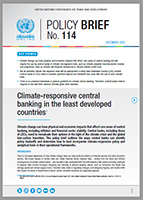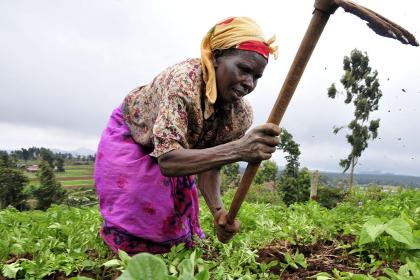
UNCTAD Policy Brief No. 114
Climate change can have physical and economic impacts that affect core areas of central banking, including inflation and financial sector stability. Central banks, including those of LDCs, need to reevaluate their options in the light of the climate crisis and the global low-carbon transition.
This policy brief outlines the ways central banks can identify policy tradeoffs and determine how to best incorporate climate-responsive policy and analytical tools in their operational frameworks.
Key points:
- Climate change can have physical and economic impacts that affect core areas of central banking and will require the use by central banks of climate risk exposure tools, such as climate-adjusted macroeconomic models and projections, rules on climate risk financial disclosures or climate-related credit rules.
- Not all available climate risk exposure tools will be appropriate in every least developed country (LDC) context. Central banks of LDCs need to consider potential impacts and tradeoffs that come with the use of such climate tools.
- There is no universal framework or general guideline for climate central banking. Therefore, central banks need to respond in line with their national contexts given their mandate.
Climate-responsive central banking in the least developed countries - UNCTAD Policy Brief No. 114 (UNCTAD/PRESS/PB/2023/8)
26 Dec 2023





